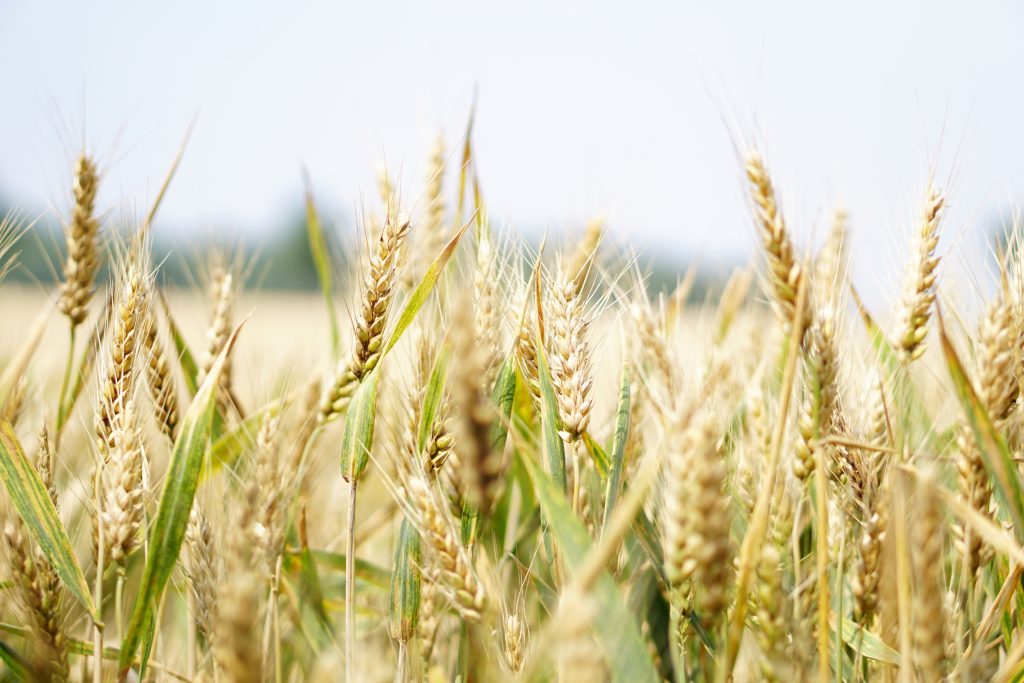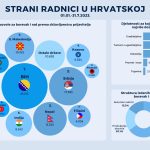August 2, 2023 – The Ukrainian Ministry of Foreign Affairs has announced that it will export grain through Croatian ports on the Adriatic Sea. The Ukrainian grain export route will be through Croatia via the Danube and then by rail to the Adriatic coast.
As Index writes, the Ministry stated that it has agreed with Croatia on this. Gordan Grlić Radman, the Minister of Foreign and European Affairs, visited Kyiv on Monday. The Ministry then announced that Croatia had made its ports available to export Ukrainian grain. Ukraine has not announced what amount of grain could be exported this way.
Using this transport route, Ukraine wants to bypass Russia’s blockade of the Black Sea after Moscow canceled the grain export agreement agreed upon by the United Nations and Turkey in mid-July.
Kyiv is trying to increase exports by land via the European Union, but several neighboring countries, such as Poland, are also obstructing that transport route. Many EU farmers fear a price drop if Ukrainian grain reaches the market.
UK Reports the Russians were planning to block the Black Sea
Russia withdrew from the Ukrainian grain agreement at the end of July. It is an agreement that was reached a few months after the war had started, mainly through the mediation of Turkey. The agreement allowed the unimpeded passage of Ukrainian ships with grain. According to the terms of the agreement, Ukrainian grain was exported via the Black Sea and the Bosphorus, the Turkish strait.
Ukraine is a major world supplier of grain, just like Russia. Ukraine has a highly developed trade with China, many African countries, and Western Europe. After Russia withdrew, the British announced that Russia was preparing to block Ukrainian ports.
The modern Russian corvette Sergey Kotov is already patrolling the route between the Bosphorus and the Ukrainian port city of Odessa, the British Ministry of Defense announced a few days ago. “There is a real possibility that they will be part of a group to intercept commercial ships that Russia believes are sailing towards Ukraine,” the report said.
In this context, it is clear that Ukraine must look for alternative ways to export grain. When the Black Sea is blocked by Russian warships, the Adriatic Sea is its closest outlet to the world.
Putin distributing grain to African countries
It is clear that in this way, Putin wants to deliver a strong blow to the Ukrainian economy, which is heavily dependent on grain export. On the other hand, Putin wants to improve Russia’s foreign policy position and gain new allies. A few days ago, he told African leaders that he would give them tens of thousands of tons of grain within a few months, despite the Western sanctions, which, he said, make it difficult for Moscow to export grain and artificial fertilizers.
Speaking at a summit in St. Petersburg dedicated to Russian-African ties, Putin said that Russia expects a record grain yield and is ready to replace Ukrainian exports to Africa on a commercial and humanitarian basis.
Putin emphasized that Moscow will respect Russia’s key role in food security at the global level.
“In the next three to four months, we will be ready to deliver 25,000 to 50,000 tons of free grain each to Burkina Faso, Zimbabwe, the Central African Republic, and Eritrea,” said Putin, receiving applause. “We will also provide free delivery of these products to consumers,” he added.
Responding to Western criticism of Russia’s decision to leave an agreement on grain exports from Ukraine’s Black Sea ports, Putin reiterated that Moscow had pulled out of the agreement because none of its promises to remove barriers to exports of Russian grain and artificial fertilizers had been fulfilled.
Some Western politicians claim that Russia is irresponsible and that its decision will affect millions of people in poor countries.
At the summit, Putin presented information that more than 70 percent of Ukrainian grain exported thanks to that agreement ended up in rich and medium-rich countries, including the European Union.
“Poorer countries like Sudan have been overrun and received less than three percent of Ukrainian grain,” Putin said, adding that Western sanctions were preventing the export of Russian fertilizer to poor countries.
“Here we have a paradox. On the one hand, Western countries obstruct the delivery of our grain and artificial fertilizers. On the other hand, they hypocritically accuse us of the current state of the world food market,” Putin said.











